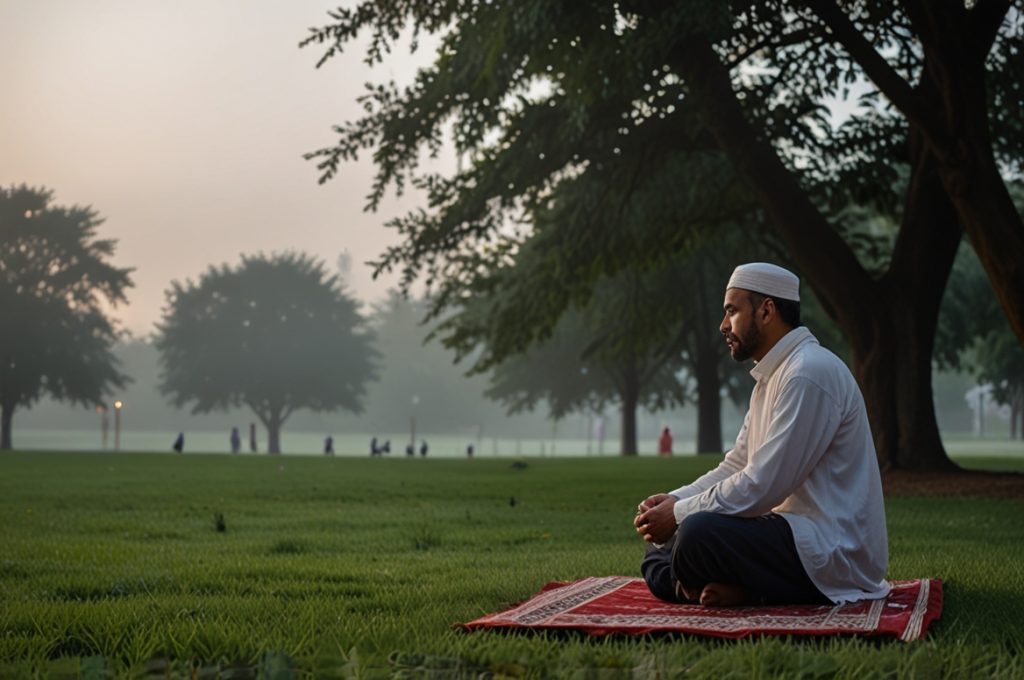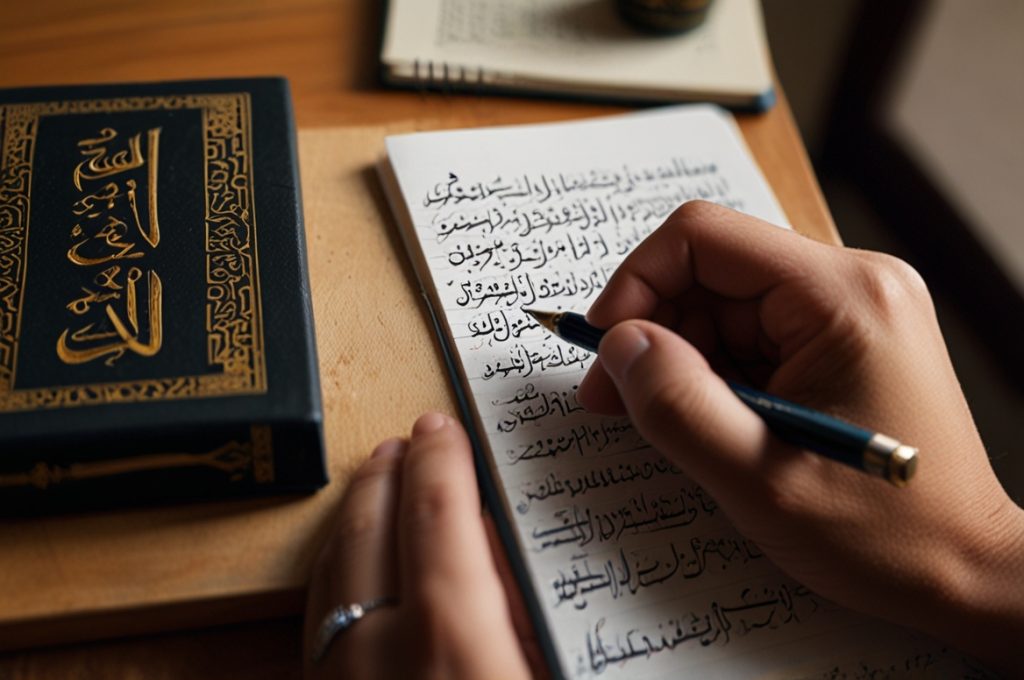Belief in Allah (Iman bi-Allah) in Islam: The Foundation of Islamic Monotheism

Introduction
Belief in Allah in Islam is the cornerstone of the Muslim faith, anchoring every aspect of spiritual, moral, and social life. Known as Iman bi-Allah, this fundamental concept reflects the essence of Islamic monotheism, also called tawheed—the absolute oneness of God. For those seeking to understand Islam’s foundational beliefs, it is essential to grasp the meaning, significance, and transformative impact of this core tenet.
In this article, we explore the meaning of belief in Allah, the doctrine of His oneness, His divine attributes, and the practical implications of this belief for Muslims around the world. Through this understanding, readers will appreciate how Iman bi-Allah not only defines a Muslim’s worldview but also inspires a life rooted in purpose, compassion, and submission to the Divine.
The Meaning of Belief in Allah (Iman bi-Allah)

At its heart, belief in Allah in Islam is the unwavering acknowledgment that Allah is the one and only deity, the Creator, Sustainer, and Sovereign of all that exists. Iman bi-Allah is not a vague or abstract belief; rather, it is a deeply personal conviction that shapes one’s understanding of existence, morality, and destiny.
The Qur’an repeatedly emphasizes this belief as the primary condition for salvation:
“Say, He is Allah, [who is] One. Allah, the Eternal Refuge. He neither begets nor is born, nor is there to Him any equivalent.” (Surah Al-Ikhlas 112:1-4)
This belief entails affirming that Allah alone deserves worship, has no partners or intermediaries, and is above all limitations and imperfections. It requires more than intellectual acceptance—it demands heartfelt submission, trust, and obedience to the will of Allah.
The Oneness of God (Tawheed)

The concept of tawheed is central to Islamic monotheism. It is the belief in the oneness, uniqueness, and indivisibility of Allah. Tawheed is not merely the rejection of polytheism but a comprehensive affirmation of Allah’s exclusive right to be worshipped and obeyed.
Scholars traditionally classify tawheed into three categories:
- Tawheed al-Rububiyyah – Belief in Allah’s Lordship: Acknowledging that Allah alone is the Creator, Sustainer, and Controller of the universe.
- Tawheed al-Uluhiyyah – Belief in Allah’s exclusive right to be worshipped: Directing all acts of worship, such as prayer, supplication, and sacrifice, solely to Allah.
- Tawheed al-Asma wa Sifat – Belief in the Names and Attributes of Allah: Affirming the divine names and attributes mentioned in the Qur’an and Sunnah without distortion or denial.
Violating any of these aspects is considered shirk (associating partners with Allah), which is the gravest sin in Islam. As the Qur’an warns:
“Indeed, Allah does not forgive association with Him, but He forgives what is less than that for whom He wills.” (Surah An-Nisa 4:48)
The Names and Attributes of Allah

Understanding the attributes of Allah deepens a Muslim’s connection to their Creator. In Islam, Allah has revealed 99 beautiful names (Asma’ul Husna) that describe His majesty, mercy, and power. These names are not mere labels—they reflect the essence of Allah’s being and how He interacts with creation.
Some of the most well-known attributes include:
- Ar-Rahman (The Most Merciful)
- Al-Hakeem (The All-Wise)
- Al-Ghafoor (The Forgiving)
- Al-Alim (The All-Knowing)
- Al-Adl (The Just)
Believing in these names encourages Muslims to develop trust in Allah’s wisdom, hope in His mercy, and fear of His justice. The Qur’an encourages believers to call upon Allah using His names:
“And to Allah belong the best names, so invoke Him by them.” (Surah Al-A’raf 7:180)
These attributes not only enhance spiritual awareness but also serve as moral ideals for Muslims to emulate in their daily lives.
How Belief in Allah Shapes Muslim Life

Belief in Allah in Islam is not confined to theological discourse—it profoundly influences every aspect of a Muslim’s life. From worship to interpersonal relationships, from moral choices to personal goals, Iman bi-Allah provides direction, discipline, and meaning.
Here are key ways this belief shapes a Muslim’s worldview:
1. Purpose and Identity
Belief in Allah gives life a clear purpose: to worship and serve the Creator. It instills a sense of identity rooted in servitude to Allah, not in material success or societal validation.
“And I did not create the jinn and mankind except to worship Me.” (Surah Adh-Dhariyat 51:56)
2. Moral Guidance
Knowing that Allah is all-seeing and all-knowing encourages Muslims to live ethically, whether in private or public. The constant awareness of divine accountability helps individuals maintain integrity and avoid wrongdoing.
3. Emotional Resilience
In times of hardship, belief in Allah offers comfort and patience. Muslims trust in Allah’s wisdom and mercy even when facing trials, knowing that this world is a test and the ultimate reward lies in the Hereafter.
4. Social Justice and Compassion
Belief in a just and merciful God motivates Muslims to uphold justice, help the needy, and show kindness. Islam teaches that acts of charity and compassion are forms of worship pleasing to Allah.
5. Connection through Worship
Through prayer, supplication, fasting, and other acts of worship, Muslims cultivate a deep personal relationship with Allah. These practices are not ritualistic routines—they are spiritual lifelines that nourish the soul.
Conclusion
The belief in Allah in Islam—Iman bi-Allah—is not merely the first pillar of faith; it is the spiritual foundation upon which the entire religion stands. It affirms the oneness and perfection of Allah, defines the purpose of human life, and shapes every dimension of a Muslim’s character and actions.
Understanding tawheed, the attributes of Allah, and the real-life implications of faith leads to a more holistic appreciation of Islam’s message. For Muslims and seekers alike, embracing the belief in Allah is a journey of both the mind and heart—one that leads to peace, purpose, and eternal success.
As Muslims say in their daily prayers,
“You alone we worship, and You alone we ask for help.” (Surah Al-Fatihah 1:5)
Such is the essence of Iman bi-Allah—the soul of Islamic monotheism.




